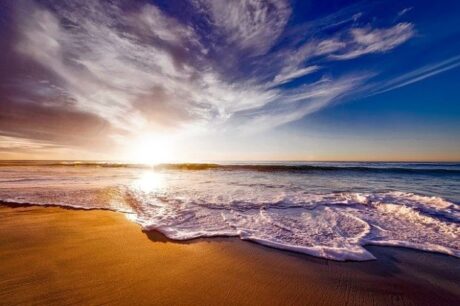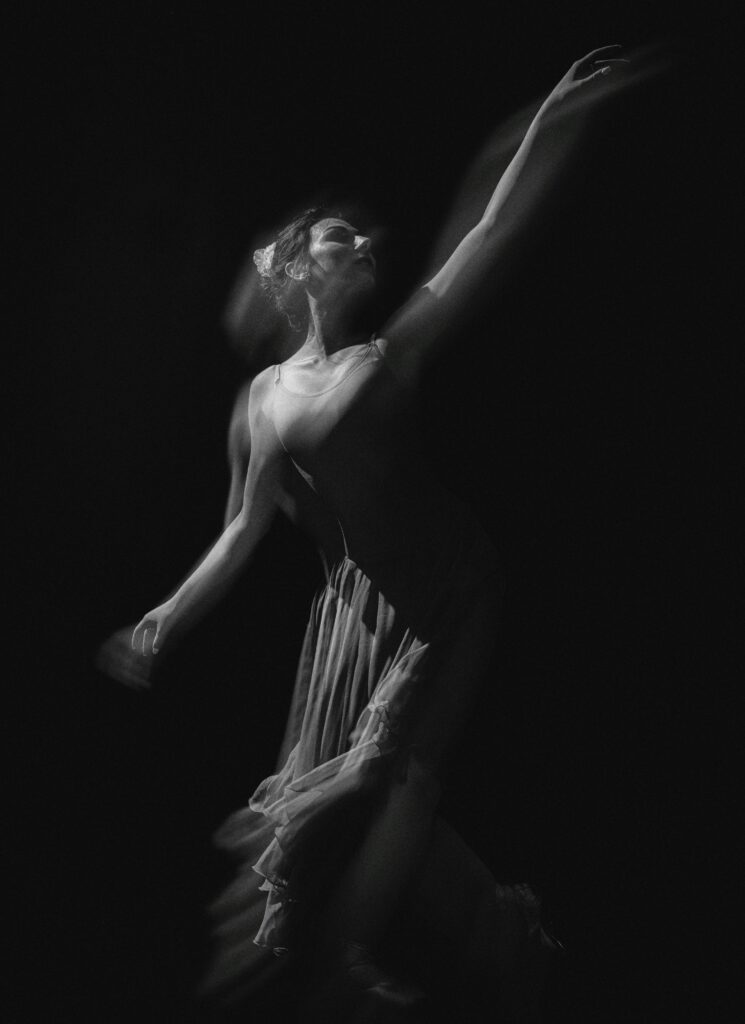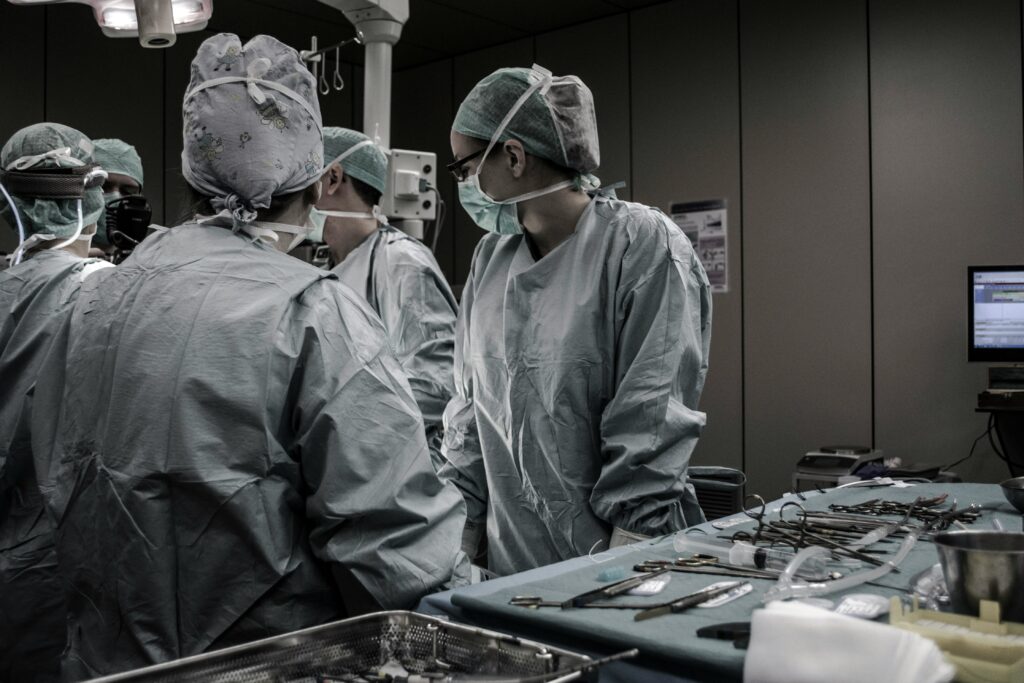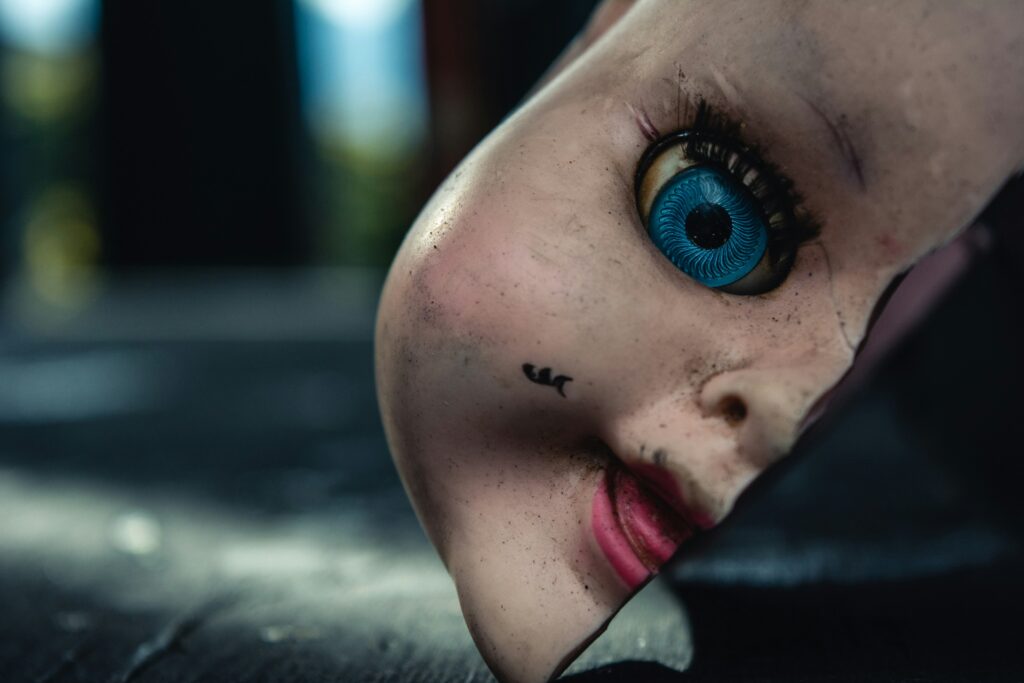BUOYANCY
Oindrila Gupta, December 7, 2022

Their calves were shaking from the impact of walking down the cliffside. When they stopped to look at the view from the halfway point, the tremors grew in intensity. Other walkers, heading for the deep, bright lagoon, had stopped to take pictures on their phones.
“Your calves are shaking,” said Elliot.
“Yours too,” said Charlotte.
“From the impact.”
“Yeah, the impact. It’s easier uphill, I think.”
“Of stopping yourself.” He placed his hand on the small of her back, beneath the turquoise travel backpack which had compartments for bottles of water, barely drunk. Her skin was damp, and the little blonde hairs above her shorts shone with sweat.
“Isn’t it beautiful?”
“Like a postcard.”
“Uphill, it will be easier.”
“Your legs don’t shake.”
“It’s in your thighs, then. More heavy lifting than stopping yourself.”
“Yes.”
“The burn,” said Charlotte, in an accent mimicking his. “You feel the burn.”
“The burn,” he said, in his normal accent. American.
The day was hot, and the cloudless sky was a searing blue colour, almost white. That morning they had slept in and woke up in the heat of their rented apartment. It was September. Milder than the months of high summer, the temperature meant that there was no need to seek shade although they had been walking for over an hour. On their phones they also took photograph of the scenery, and now the view of the lagoon which stretched below them.
Resuming the walk, the broken rocks along the well-established path gave way to sand, and they were in the bay. The beach was long and curling and looked less like a postcard when you were up close to the water, where groups walked through like desert herds in the knee-height water, trailing in neat lines like buffaloes or fat elephants. Charlotte took off her sandals and carried them in her hand as they walked along to look for the right spot to spend the afternoon. With their backpacks they skirted around the edge of the water, towards a mass of sunbeds which faced out towards the sea proper. There were lots of sunbeds and signs advertising their prices, a kiosk which advertised itself as a cafeteria, and a public bathroom hidden around the corner. Soon they came across an area past the congregation of sunbeds and tourists, where there were fewer people, and the finer sand gave way to thickets and coarser sand. Elliot laid his towel down in a miniature clearing a few yards from the sea.
“Here looks good,” said Elliot.
“Yes,” said Charlotte, laying down her own towel next to a dead looking shrub. “No music and no kids.”
“That was a disaster.”
“It wasn’t a disaster. It was funny.”
Elliot took off his white t-shirt and laid it out on a rock to dry.
“It’s not as beautiful up close,” he said.
“Yeah… but it’s still nice.”
“Yes. Let’s get hot for a bit and then go into the water.”
“Sounds good,” she said.
After a while spent sunbathing and reading, Charlotte asked, “Are you going to take any photographs?”
“Of you, maybe.” His eyes were closed, and he did not turn to speak to her. “I don’t really get anything from places like this.”
“What do you mean?”
“Not like that. I don’t mean it in some big, deep way. Just it’s beautiful. But that’s what there is.”
“I don’t understand.”
“I mean I’ll look around.”
His mild Philadelphia accent which was delicate and generic and could have been straight from a televised awards ceremony pleased Charlotte. He spoke so softly; it would never seem normal to her. She liked his photographs, too, even though she did not understand why he chose to capture the images he did. They were still good, she thought, good and artistic, and it comforted her to share so much time with someone who experienced the world so visually, as slices of reality that could hold deeper meanings and potentialities, different to her linear approach, the approach of the reasonable being, constantly interpreting events and concepts that lay outside her immediate purview. How things got to be as they were, their history and how they could perhaps be changed for the better, just a little bit, if the right people cared. He seemed to enjoy them, or not enjoy them, as they were, as they existed in front of him, the world’s primal quality an immediacy, a flatness.
She did not enjoy when he sometimes said things like working in a restaurant gave you an appreciation of the shit people will put up with for money.
Or the hassled tone he took when she politely disagreed with him.
There were other ways that people put up with shit. And not just for money.
But he had moved from the United States to be with her – a place she had not yet visited and had always seemed to be a single, monolithic, and imperial entity, a whole like no other – and so she was bound to him and tolerated him in a way uncharacteristic of her other relationships. She wanted him to do well, even if he could be a little juvenile sometimes.
“Do you feel that, now?”
“Feel what?”
“My legs. They’ve stopped twitching.”
“Mine too.”
Charlotte went back to her reading in the shrubs while Elliot set off to wander round the lagoon with his camera, taking pictures of the various scenes absent-mindedly. The queue at the cafeteria, the trawling families with the water at knee-height in the lagoon, the wooden signs marking the way to the toilets. It was now mid-afternoon, the day passing quickly, and the sun was at its hottest, the deep bay drenched in its aural, white glow, though it was not too hot because it was September.
“This is nice,” Charlotte said when he came back. “Did you take any good ones?”
“Not really,” he said, reclining on the white bath towel he had brought from the beach, which was dirtied with sand and beach grass. His hands were behind his head and he was breathing deeply, the wind blowing close over his tan torso, the wind an immediate, directionless swill, passing along his skin over and over again. “Should we go in?”
“Yes, let’s.”
They both stood up, brushing the sand off, and waded into the sea which was only a few feet away. When they were waist height, Elliot dived forward into the gentle, crystalline water, clear enough to see your feet, as Charlotte dropped down and submerged herself vertically. The sea was darker in the patches where rocks, or ominous looking forests of seaweed clung to the seabed, but asides from that the water was white-blue and reflecting of the sun and clear. It was quiet enough that when Charlotte cracked her knuckles, she heard a dull echo from under the water. There were no waves to speak of.
“I feel so relaxed,” said Charlotte. They were floating along together. He cradled her in the water and took slow, aimless steps.
“Me too,” he said.
“So here’s my plan for the day. Do you want to hear it?”
“Yes.”
“Is that annoying?”
“No,” he said. She smiled at him. He enjoyed how she looked when her hair was wet, pasted to the sides of her head, as if she had just got out the shower, ready to go out for dinner.
“We stay here for a few hours. Soak up the sun, read our books. Maybe get a beer towards the end.”
“Yes, I’d like that.”
“And then when the Sun is still out, we walk back up. I don’t feel like driving in the dark.”
“OK.”
“And the car is a fair distance away.”
“OK,” he said again.
“Later we grab a drink in town, before dinner. Somewhere nearby. Then dinner at one of those restaurants on the list. After, I thought we could try out the jazz café.”
“The jazz café.”
“Yes.”
“I wonder if there’s any jazz.”
“You like it?”
“I like it.”
“Are you relaxed?”
“Yes,” he said.
And the day followed as planned, they swam and read and drank two beers before the sun went down.
There was little else to disturb them. There was, though, an American couple in front of them who said many exhausting things to another. The couple turned to an apparently enthused pair of Europeans and talked about property, the U.S. government, and all the other places they had been from their tent just a little further along. The husband, hidden in the tent, was relatively quiet, and Charlotte and Elliot shared looks as she said a series of things that were terrible to them, about how they liked nicer things and how things were expensive, Santorini, communism in eastern Europe, how they were not going to have kids, how she was a party girl and he had to convince her to get married. When the husband spoke, he also appeared terrible, in agreement with his wife, and Charlotte and Elliot shared more looks. But Elliot resented other Americans abroad, as if they encroached on a space which has his alone to inhabit, and he was the first one to do the things they also did and spend less money in the process. After too long in their vicinity, he would fidget in Charlotte’s presence, as he was now, flicking the lighter on, looking into the sparks for something quick to say. His emotions were transparent like that, but Elliot did not let Charlotte help, so she did not try. They would forget the exactitudes of what the couple said, they spoke about how good it would be to record their voices for posterity.
Soon Charlotte also was bored of listening in, Elliot went to take more pictures of the same ruminating scenes, but this time in a different light with different shadows to consider. At one point Charlotte fell asleep.
When she woke, they drank the two beers, bought from the kiosk on the other side of the bay.
“Where should we go tomorrow?” Charlotte asked as they packed up their things.
“Anywhere. Anywhere on the list.”
“Taking it easy.”
“Exactly.”
“Great. Somewhere you could take some more pictures.”
“Of you maybe. A beach isn’t a beach anymore. Not really,” Elliot said, indicating in the direction of the couple by the tent. The wife was standing ankle deep in the water, performing some strange routine of wetting her hands and rubbing seawater all over her body, instead of just going straight in.
“A beach is…”
“A beach is beach playlist number four.”
“It’s Ibiza acid house mix.”
“It’s bad photographs.”
“Naked people. In goggles. Hanging out by the trash.”
“A beach is Scandinavian DJs.”
“A beach is cosplay.”
“I like this game.”
“Me too.”
“Alright. Are you ready? Let’s go.”
The hill climb was almost easier on the way up, their calves not bearing the impact. And there was a breeze too.
Walking mostly in silence, the lagoon became prettier and prettier as they scaled up the broken, rocky path.
After an hour-long drive, during which Elliot sang along to songs played through Charlotte’s phone which was perched on the dashboard and could barely be heard against the engine. At the apartment they showered together and had pleasant, formulaic sex, conscious of the time.
At dinner the only options were fresh fish and fries which was rather bland, with only a little lemon and not much seasoning, but Elliot and Charlotte were dressed nicely and enjoying their extraordinarily cheap wine.
“It’s as good as the stuff on the menu, I bet,” Elliot said. “One of the good things about Europe. There is good, cheap wine. Even in restaurants.”
From the Old Town, a series of alleyways lined with metal chairs and hidden restaurants, down to the harbour where there were more bars and restaurants of the modern type. The light from the restaurants, the glare of modern convenience, reflected across the dark, glittering sea. Families walked along the harbour taking no notice of the dogs and child beggars with beautiful eyes, going from table to table and restaurant to restaurant, playing instruments for the thousands of night-time tourists.
“Don’t look them in the eye,” Elliot said. Drinking cold beers with iced glasses on the sea front had become a sort of ritual, a taste of something busy and regular before making their way to the hidden bars of the Old Town where the company was more personal, the lighting dimmer.
“Otherwise, they’ve got you,” Charlotte agreed. “But aren’t they beautiful.”
“They are. I wonder what the economy of this is… where their euros go.”
“Poor children. The police don’t seem to mind though.”
“Probably in on it.”
A red light flashed deep into the harbour. It had once been a famous and important lighthouse. No boats could be seen beyond the outer Venetian wall at night. The presence seemed continuous though, as if it were holding out for something, the off chance that a lost ship from the past would find its way there, to dock, to trade.
“I haven’t thought much about lighthouses. But they are cool. I wish I knew more.”
“Were you – are you – annoyed at me today?” Charlotte asked.
“Why do you say that?”
“You seem off, I guess.”
“Not annoyed at all,” Elliot said. “Just tired.”
“It’s been a long day.”
“Tomorrow I’ll feel better. I promise.”
“Let’s just get a quiet drink and head back.”
“We don’t have to… no. I feel good.”
“OK. We can stay out if you want to.”
“I want to.”
At the jazz bar back in the old town, where there was no live jazz but instead recorded soul music – mostly Nina Simone – playing from inside, they sat on metal chairs on a slope, the first people to arrive that evening. Charlotte ordered a gin and tonic, and then another, while Elliot sipped through a half litre of white wine. Soon others began to fill the other tables outside, and the music from inside the bar became louder, improving the atmosphere. Charlotte moved onto wine, too. The conversation picked up. She apologised and then continued to talk about the last few weeks of work, which had been difficult due to the summer’s events, a full cycle of news and horrors, seasonally unusual, looking at pictures and videos of desperate people in sewers and the aftermath of the suicide bombing, the dead and maimed floating in the sewage where they had been hoping for escape just a day before. She said the casual inevitability of the bomb and the immediacy through which she processed the visual information, helplessly, had an effect on her and she was not sure what it was, but she was glad to be on vacation with Elliot. He agreed and was generally supportive when he wasn’t looking at the other tables. This was not the first time this conversation had happened, and he knew not to tell her to quit, because she never would.
“Trauma, I guess. But it’s work and what those people go through is something unimaginable. But it still has an effect.”
“Yes, you’ve worked so hard. They shouldn’t put you through that.”
“It sort of echoes, you know. But then there are lots of things that do. Other things. And you can’t get rid of those images from the past… not just this summer. I mean, we’re adults and we deal with it. But anything. Anything that has happened. People talk about it more, now.”
“People overshare.”
“Some of that is good though.”
“Yes, I suppose it can help.”
“But you’re right. People do. They overshare.”
“Publicly at least, we’re in danger this century of commodifying grief. Just another consumer desire.”
“I know.”
“And these things that happen to us. They don’t just live in the past. They echo.”
“They’re here now.”
“Yes. That’s the echo,” she said.
Elliot now was not sure what to say, he was tired and did not want to say the same thing. Charlotte rested her head against the alley wall, closing her eyes momentarily. In silence for a while, Elliot thought about the echo and whether he really believed that, of who he thought he had been before they met, back home which did not feel like home really anymore, how he treated people and how much of that he had shared with Charlotte, how much she deserved to know, but also how much anyone could say to anyone else about themselves, to share their honest self-assessments, their self-hatred. That could be indulgent, he thought, only serving himself and not her, and he was duty-bound to her as much as she was to him. Wanting to tell her everything, stopping short at the critical moment, for fear. It would pass, he thought. He would not want to speak about that tomorrow. He was filling the silence with his own inner tremors.
“I forgive you,” she said suddenly.
“For what?”
“For being off today.”
“I’m sorry,” he said.
“It’s OK. We have so many more days.”
“We do.”
Elliot woke early with a headache, but he went to buy coffee and pastries while Charlotte slept. She smelled faintly of alcohol. When he returned, he gently woke her, and they ate on the balcony where on some nights they listened to Paul Simon on Charlotte’s phone because they had forgotten to pack her portable speaker. They looked out over the balcony as they ate. The alley, the cats, the topless old men already drinking beer and stirring. They held hands across the table, smiling at one another when their eyes met.
You may also like
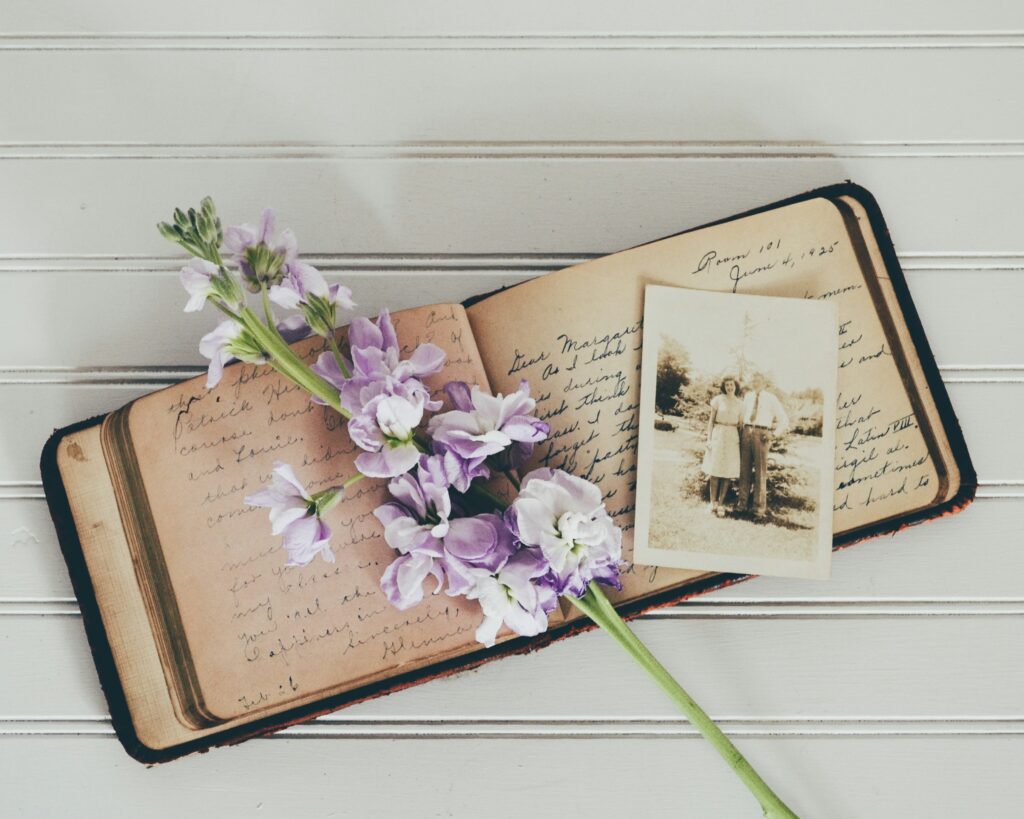
Eyes of the Beholden
Unspoken desires linger in the shadows of a teacher's life, revealed through art
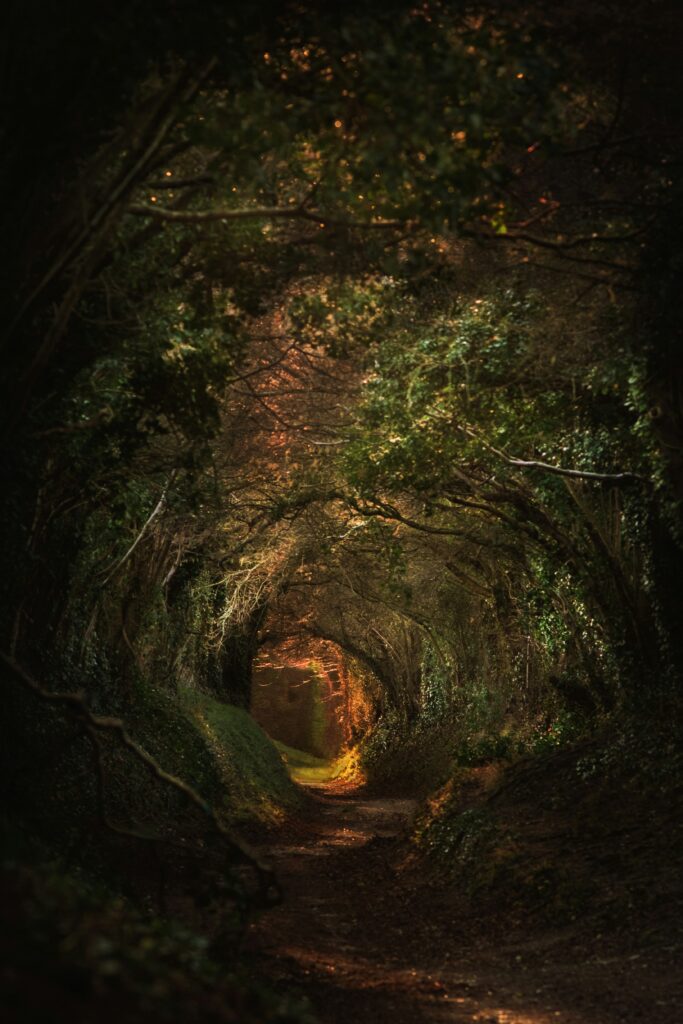
LOST
Bessie's odyssey through stormy nights, lost love, and secret graveyards unfolds with haunting beauty in "Lost" by Sandra Dennis.
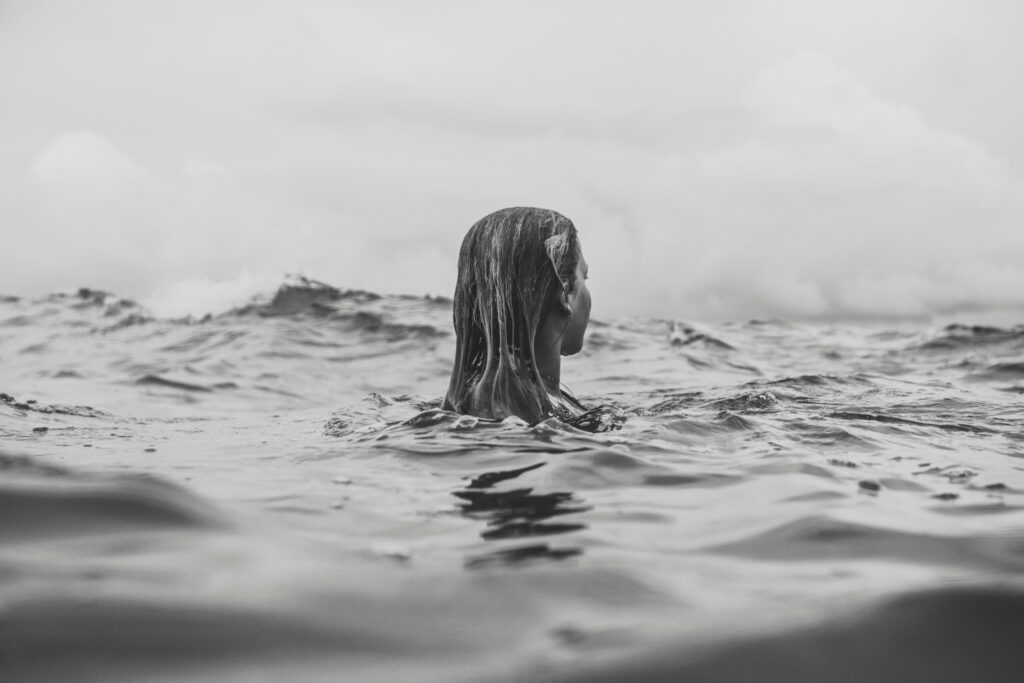
Water Rising
Amidst a flood, a woman grapples with the past, and confronts the consequences in this haunting narrative of resilience.
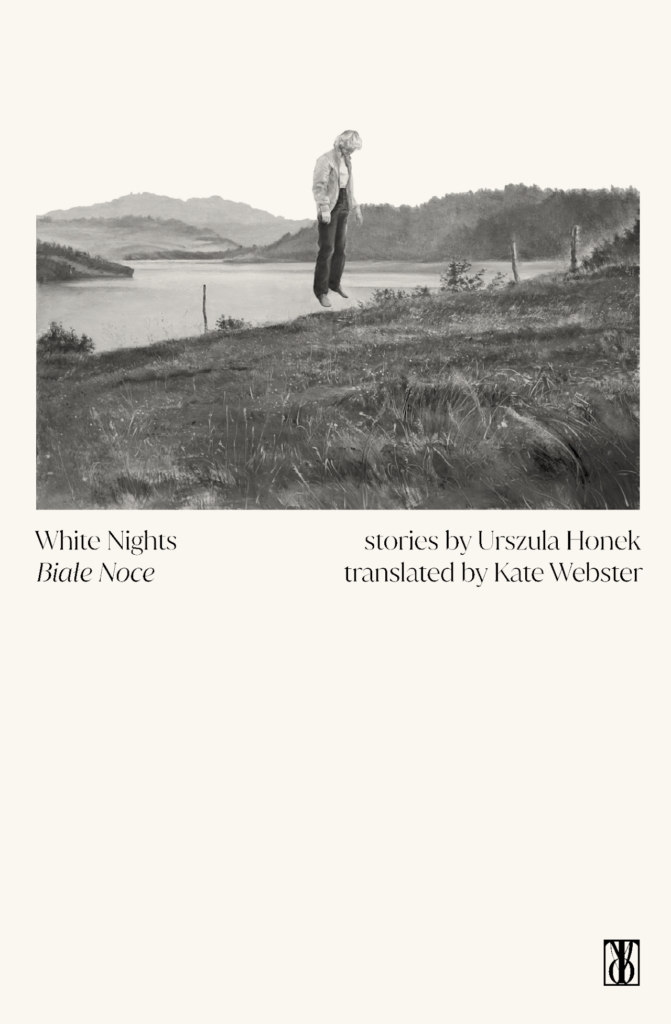
Book Review: White Nights by Urszula Honek
The debut short story from Polish writer Urszula Honek, White Nights, is akin to reading an account of a haunted place – one that is beautiful and devastating in equal
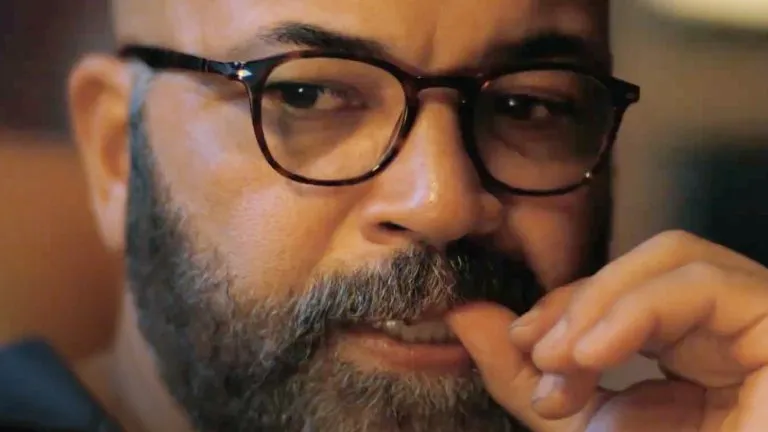
Beyond the Surface: The Multifaceted Lives of ‘American Fiction’
In essence, "American Fiction" and the experiences it draws from remind us that we are indeed more than the sum of our parts.
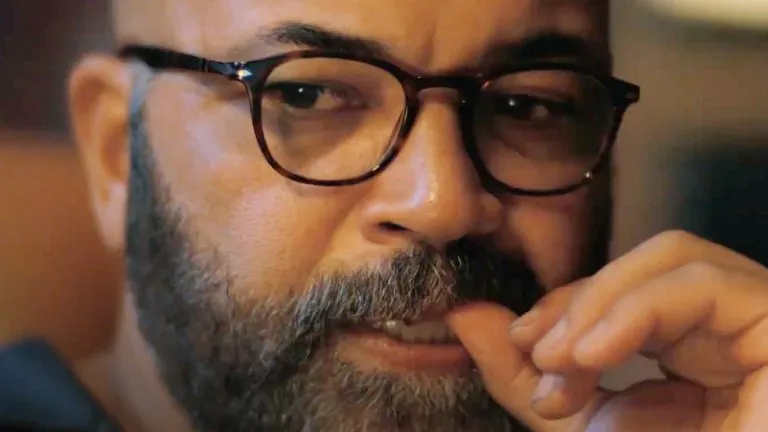
Beyond the Surface: The Multifaceted Lives of ‘American Fiction’
The narrative of “American Fiction” unfolds with a dual focus: it not only scrutinizes the unique pressures faced by Black creatives but also delves into the intricate and sometimes tense…
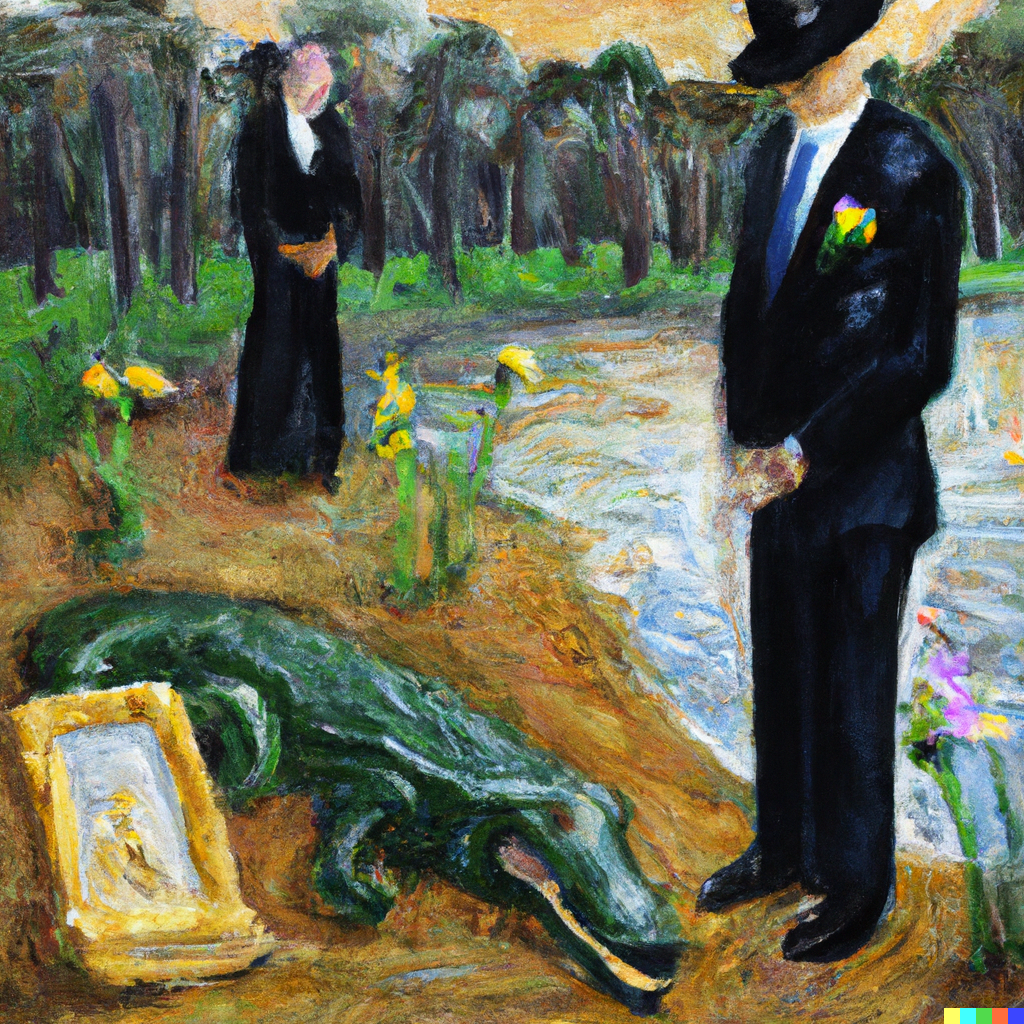
Uncle Bobby’s Funeral
Reluctant family faces the eccentricities of Uncle Bobby's funeral in swampy Chipley.




